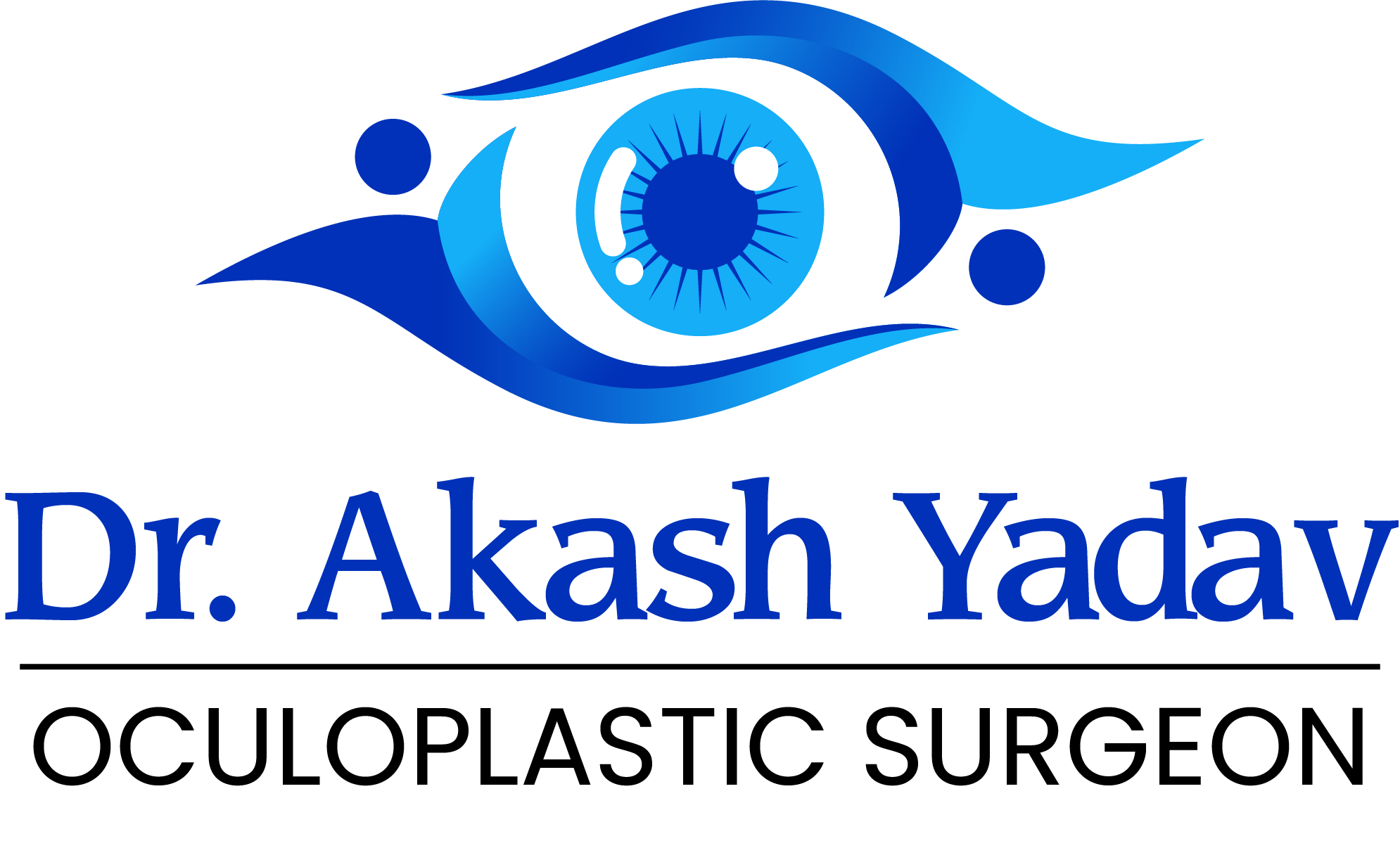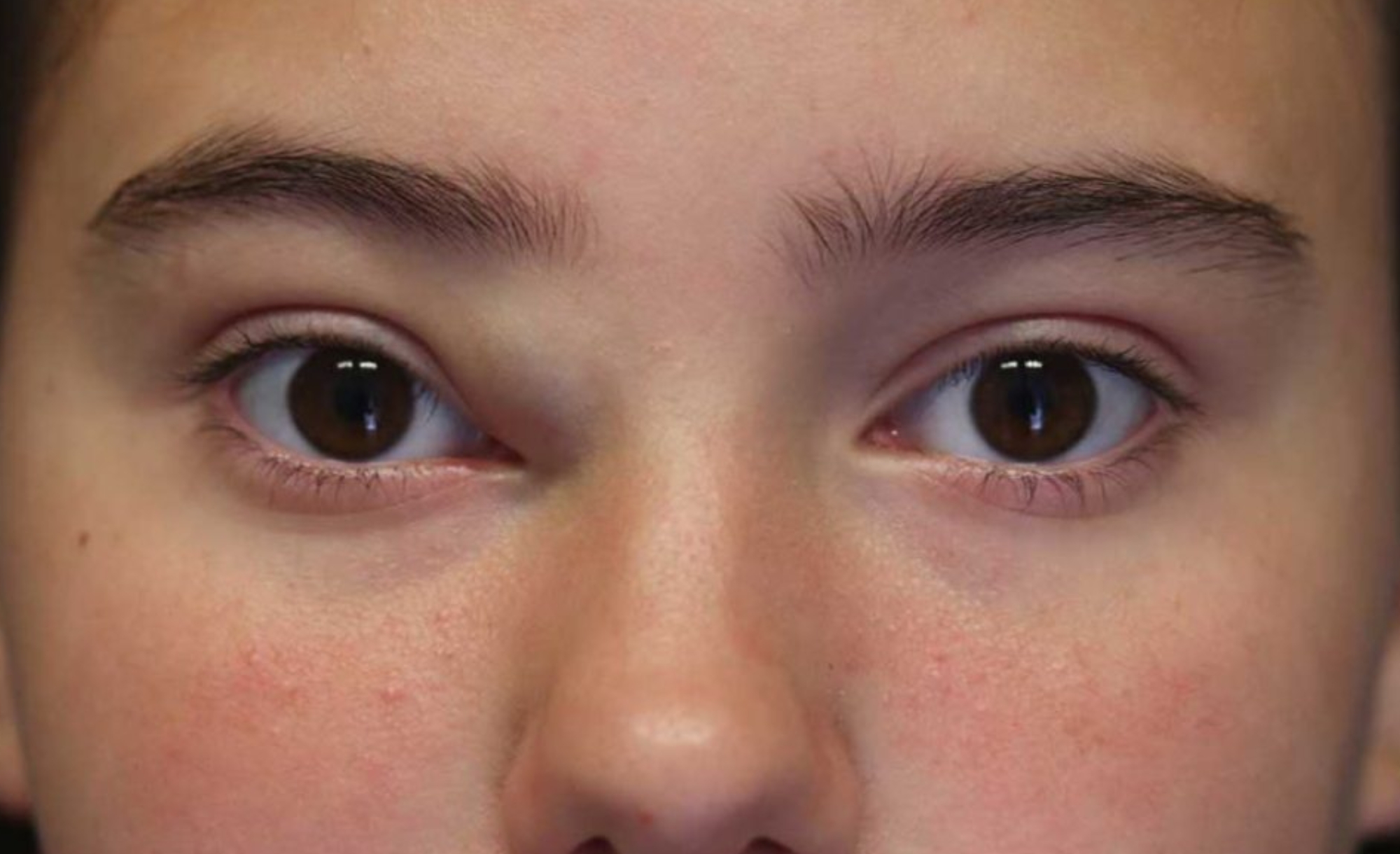
Orbital Cyst and Tumor Removal Surgery in Pune By Dr. Akash Yadav
Orbital cyst and tumor removal is a specialized surgical procedure performed to eliminate abnormal growths in the eye socket (orbit). These growths can be benign (non-cancerous) or malignant (cancerous) and may cause vision problems, eye discomfort, or facial deformities if left untreated.
Dr. Akash Yadav, a renowned oculoplastic surgeon in Pune, specializes in safe and precise orbital cyst and tumor removal surgery. Using advanced microsurgical techniques, he treats benign and malignant growths around the eyes, ensuring minimal scarring, optimal eye function, and cosmetic preservation. Whether dealing with dermoid cysts, lacrimal gland tumors, or thyroid eye disease-related masses, Dr. Akash Yadav provides personalized care, accurate diagnosis and effective surgical solutions for improved vision and facial aesthetics.
Common Types of Orbital Cysts and Tumors
- Dermoid Cysts – Congenital, benign cysts often found near the eyebrow or eyelid.
- Mucoceles – Cysts caused by blocked sinuses that expand into the orbit.
- Hemangiomas – Benign vascular tumors.
- Lymphomas – Malignant tumors affecting the lymphatic system.
- Optic Nerve Gliomas – Tumors affecting the optic nerve.
- Metastatic Tumors – Cancers that spread to the orbit from other body parts.
Symptoms of Orbital Cysts and Tumors
- Bulging eyes (proptosis)
- Double or blurred vision
- Eye pain or pressure
- Swelling around the eyes
- Restricted eye movement
- Vision loss (in severe cases)
Diagnosis of Orbital Growths
- Comprehensive Eye Exam – Assessment of vision and eye movement.
- Imaging Tests – MRI or CT scans to determine size and location.
- Biopsy – Tissue sample analysis to identify malignancy.
Orbital Cyst and Tumor Removal Procedure
If the pterygium affects vision or causes discomfort, surgery may be recommended.
Surgical Approach
- Anterior Orbitotomy – For front-located cysts/tumors (incision through eyelid).
- Lateral Orbitotomy – For deep orbital tumors (access via the side of the eye socket).
- Endoscopic Surgery – Minimally invasive removal through nasal passages (for sinus-related cysts).
Recovery
- Mild swelling/bruising for 1-2 weeks.
- Antibiotics and pain management as needed.
- Follow-up visits to monitor healing.
Risks and Complications
- Infection
- Bleeding
- Temporary or permanent vision changes
- Nerve damage
- Scarring
Cases of Orbital Cyst and Tumor Removal Operated by Dr. Akash Yadav
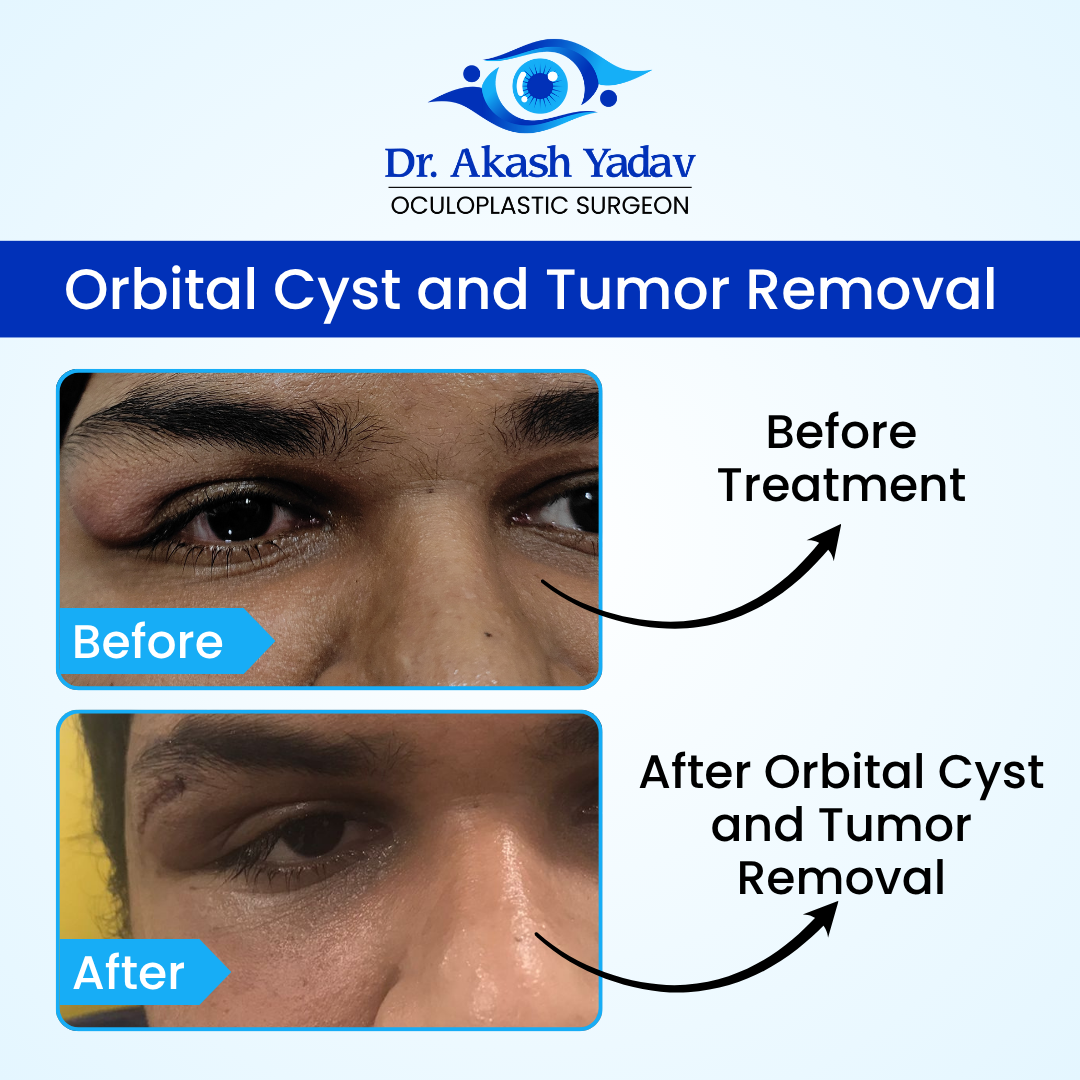
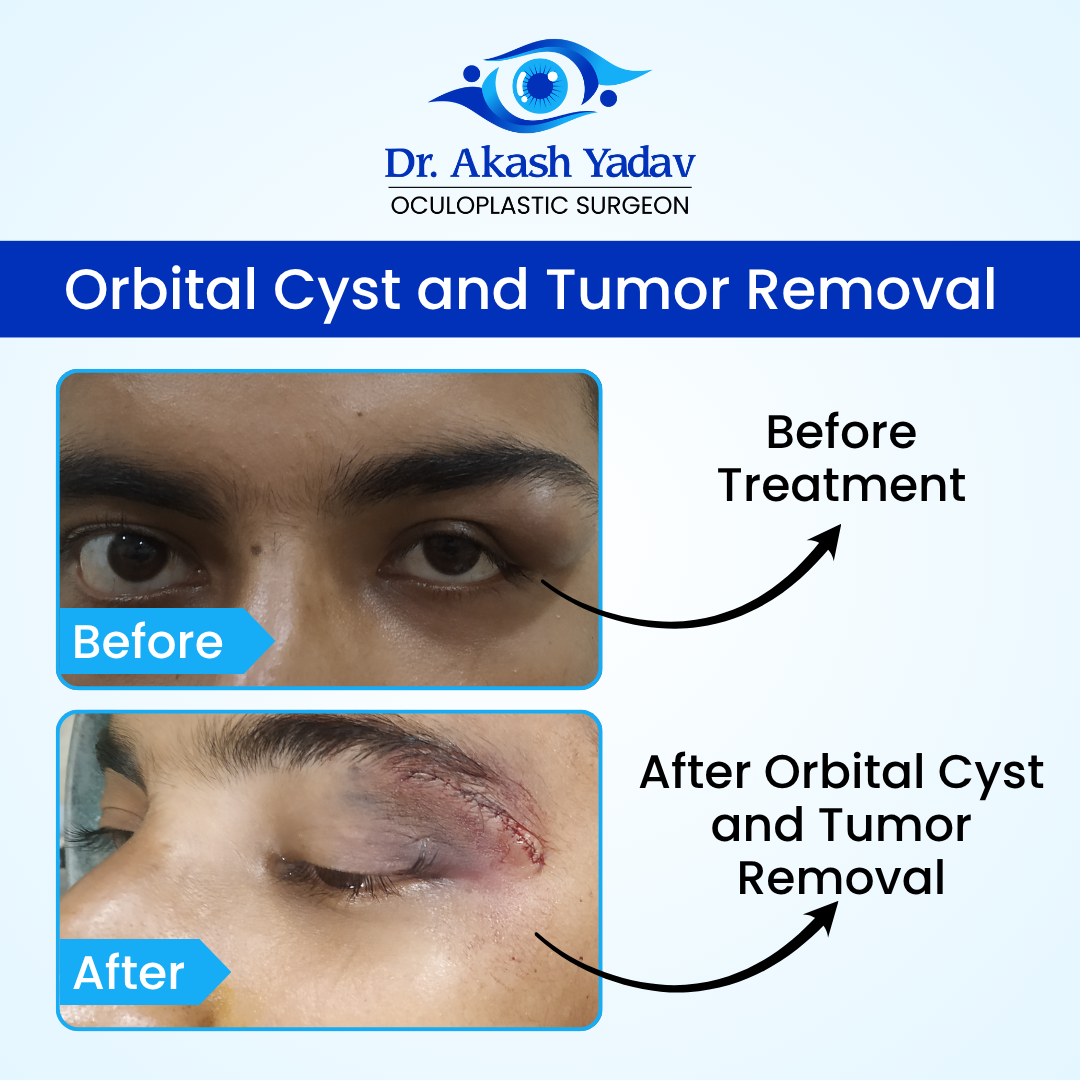
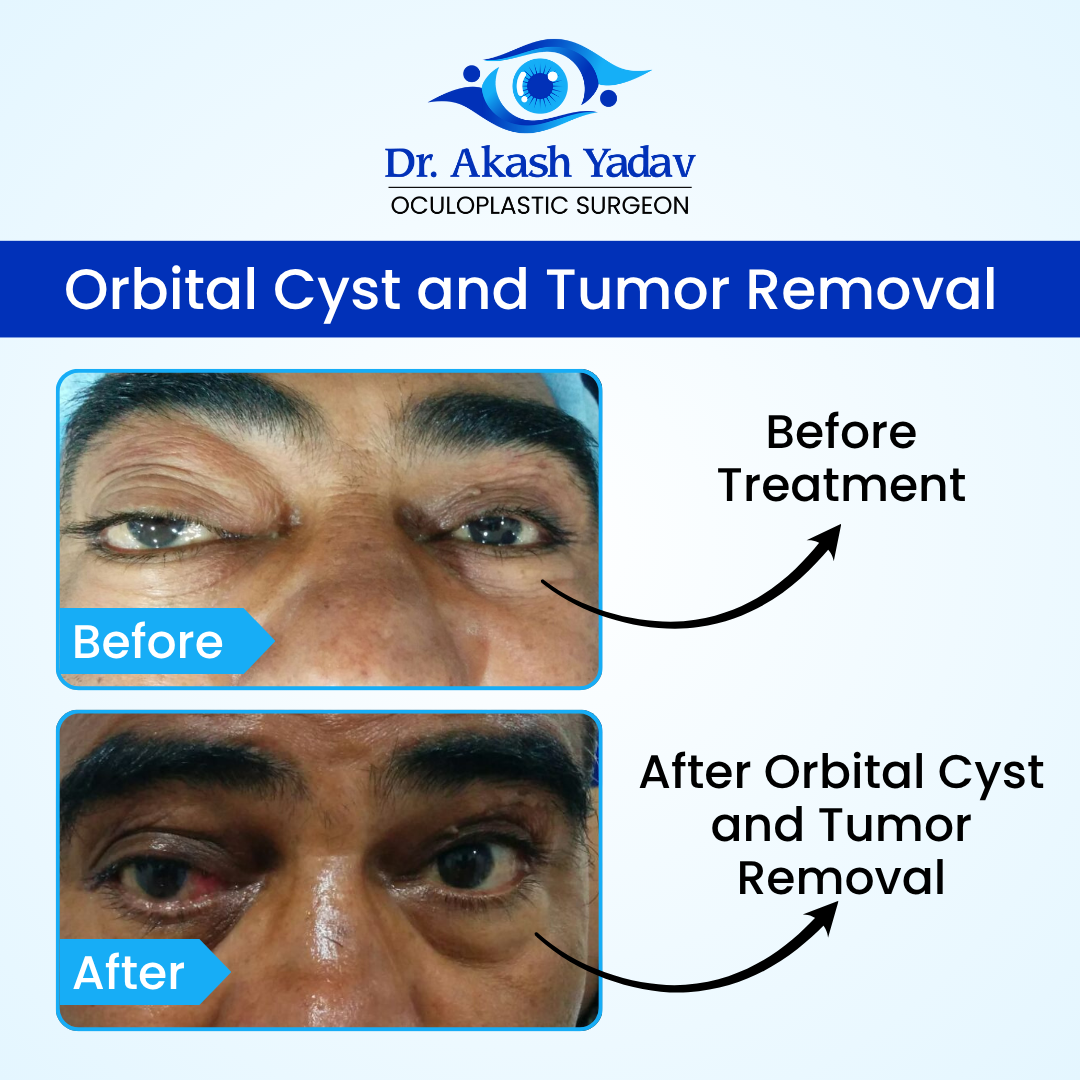
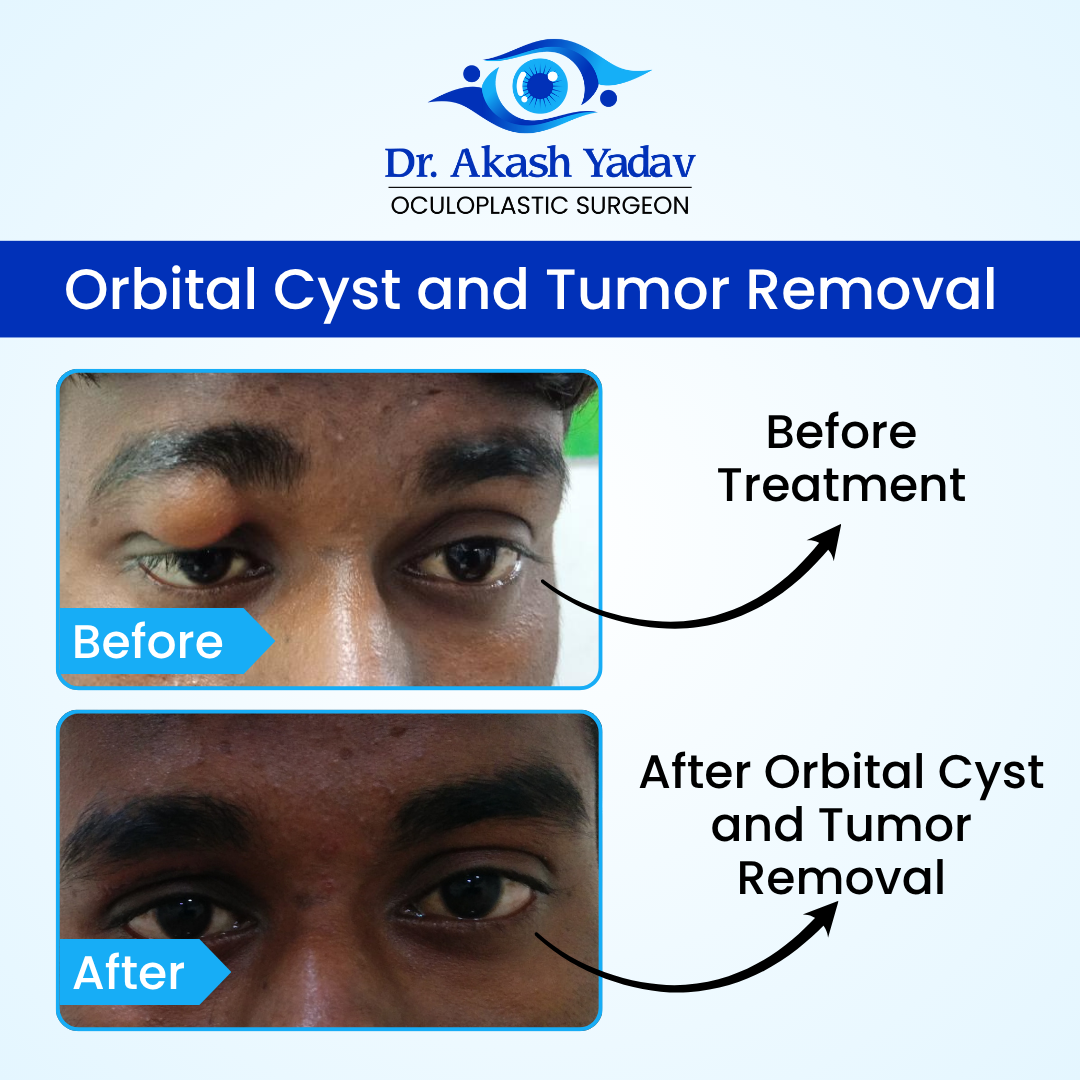
FAQs About Pterygium Removal
Most patients recover within 2-4 weeks, depending on the complexity of the case.

